Results: 5 animals that can survive without food
Published on 09/09/2017
It appears that going without food is not that uncommon out there in nature-land. We eat regularly because we have to and we can, but not all animals have it so easy. Information provided by The Land of Lists.
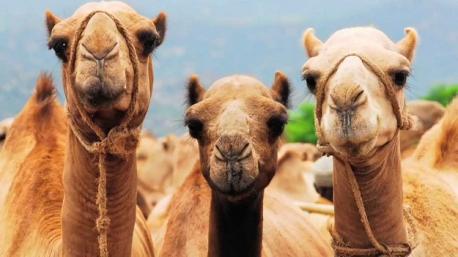
QUESTIONS
GO to COMMENTS
Comments
1.
1.
Camels: Time without food: 40 days. The camel has a great capacity to survive for long periods without food or water. In fact they can live longer without water than without food. Part of the reason for this is the large amount of water they store in their hump. No, it's not all water; it's fatty tissue. When there is no food or water around the fat in the hump is metabolized and water is released as a part of this process. In fact the amount of water released into the body is about the same as the amount of fat burned. The fat is stored in a hump rather than evenly spread over the body so the fat doesn't act as insulation and keep the body warm. While metabolizing the fat releases water and energy, there are still nutrients the camel needs to survive. Are you familiar with this fatty tissue fact (in reference to the camel's hump)?

Yes
54%
797 votes
No
46%
685 votes
2.
2.
Emperor Penguin: Time without food: 120 days. The male emperor penguin gets the dubious honor of staying with the couple's sole egg for the winter while the female goes and finds herself some food. During this period of incubation the male, who shelters the egg with his feet, doesn't eat or drink. Luckily for the male he can store large amounts of energy in his substantial body fat to keep his metabolism going for warmth. He loses up to half his body weight doing this. But wait, that's not all. When the female returns and the male can go and get some food he has to walk up to 120 km's (75 miles) to get to the sea. That's no small walk for any creature, much less one that has to waddle on its short little legs. Are you familiar with these emperor penguin facts?
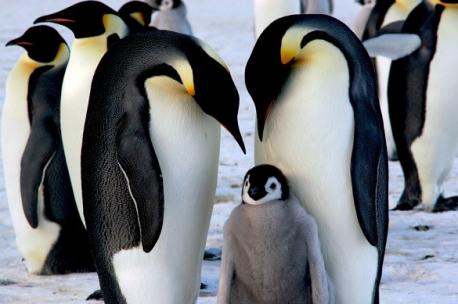
Yes
40%
598 votes
No
60%
884 votes
3.
3.
Snakes: Time without food: 1 year. Like other reptiles, snakes cannot regulate their body temperature. When they get cold their body temperature lowers and, when it's cold enough, they go into a state of dormancy. Unlike hibernation where the animal actually goes to sleep, snakes remain awake and they are said to 'brumate'. Snakes will normally find a burrow or somewhere in the dirt to brumate as the dirt protects them from the worst of the cold they are sheltering from. The snakes metabolic rate in this dormant state is so low that they are able to live for long periods by surviving on the stored energy in their bodies. Are you familiar with a snakes metabolic rate being in a dormant state (a year without food)?
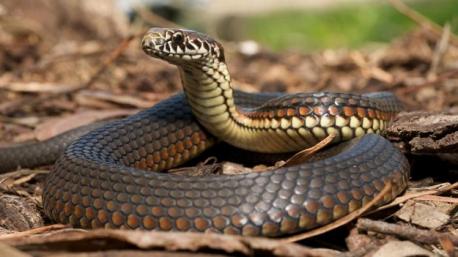
Yes
29%
428 votes
No
71%
1054 votes
4.
4.
Crocodiles: Time without food: 3 years. Crocodiles are ancient reptiles that regularly go for long periods without food. As crocodiles rely solely on the external temperature to regulate their internal body temperature (aside from panting or moving between sunshine and shade), they don't require food to maintain a metabolism that maintains body temperature. They become more active in hot months and less active in the cooler months. Crocodiles are very efficient at storing energy in their bodies and are capable of eating large meals. This, and their ability reduce remain motionless for long periods means they can go without food for as long as three years. Are you familiar with these crocodile facts?
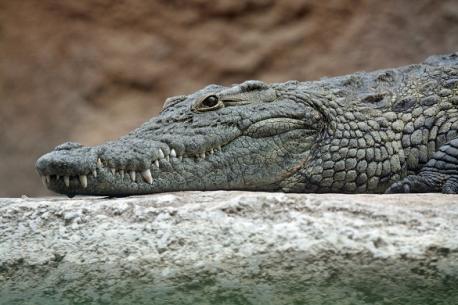
Yes
22%
329 votes
No
78%
1153 votes
5.
5.
Olm: Time without food: 10 years. Olms are amphibians that live in water in underground caves throughout Italy, Croatia and Slovenia. They have no pigment in their skin, eyes that don't work properly (it's blind), fantastic hearing and smell, little feet with toes and gills. It's also known as a cave salamander. They prey on small crabs and snails and are extremely good at storing food in their body as lipids and glycogen. When there isn't much food around they lower their metabolic rate and become inactive, living from their nutrient reserves. Documented trials have demonstrated that these creatures can live for up to 10 years without food. Is this the first time you are reading about an olm (or amphibian)?
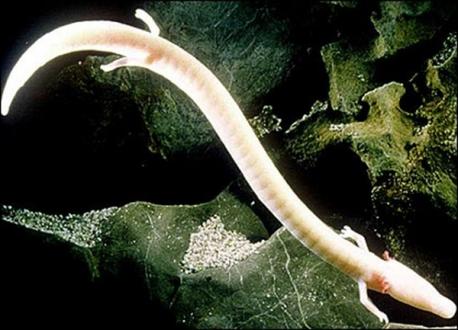
Yes
43%
643 votes
No
57%
839 votes
6.
6.
Lastly: Do you know of any other animals that can survive without food for a long period of time. Please - no reference to animal abuse! If yes, please post the animal(s) in the comment section.
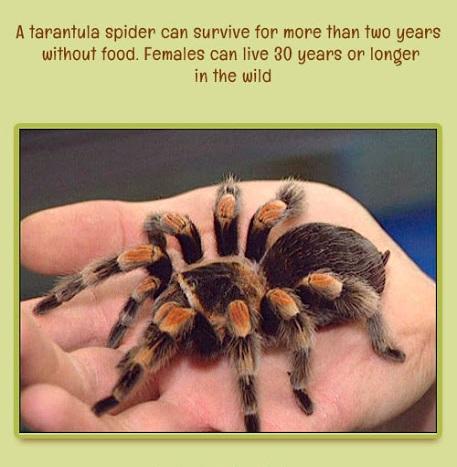
Yes
10%
155 votes
No
90%
1327 votes
COMMENTS


